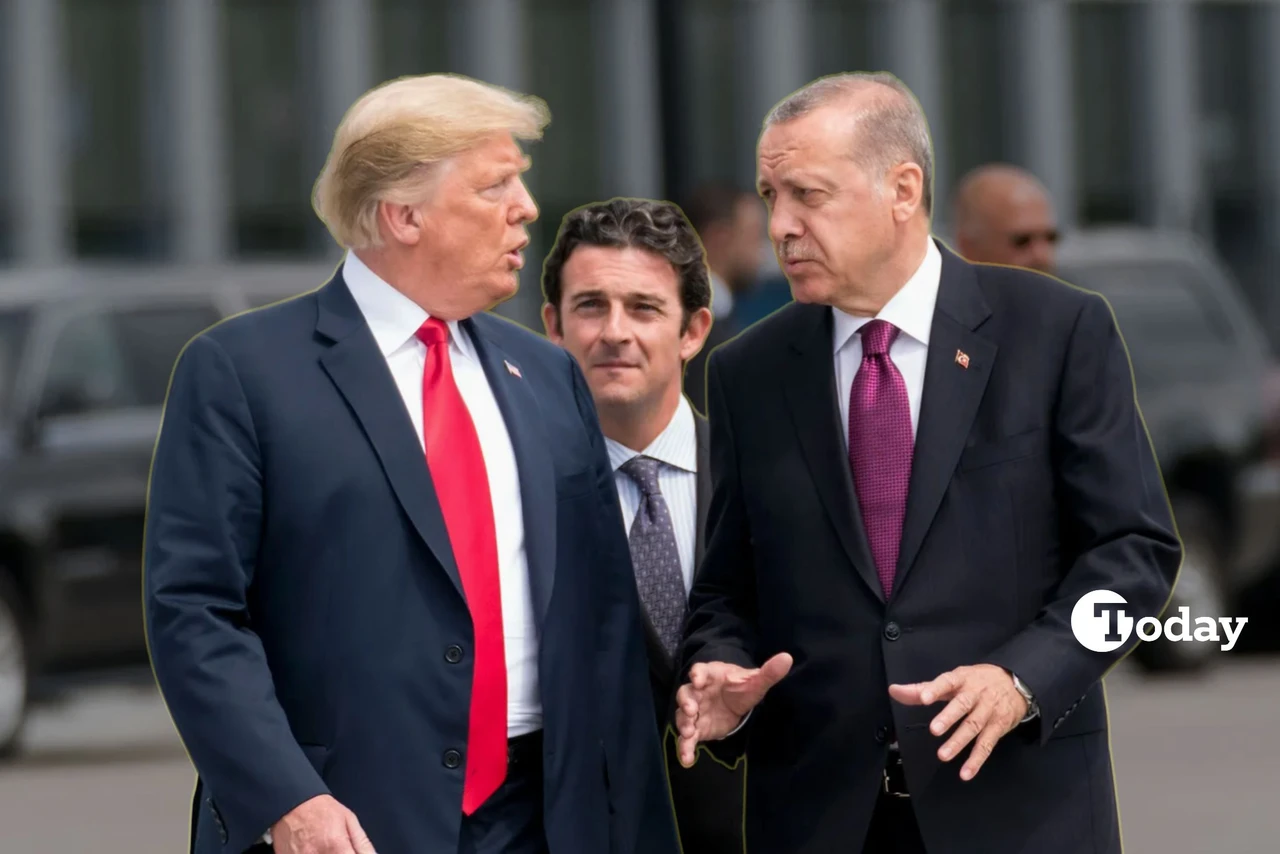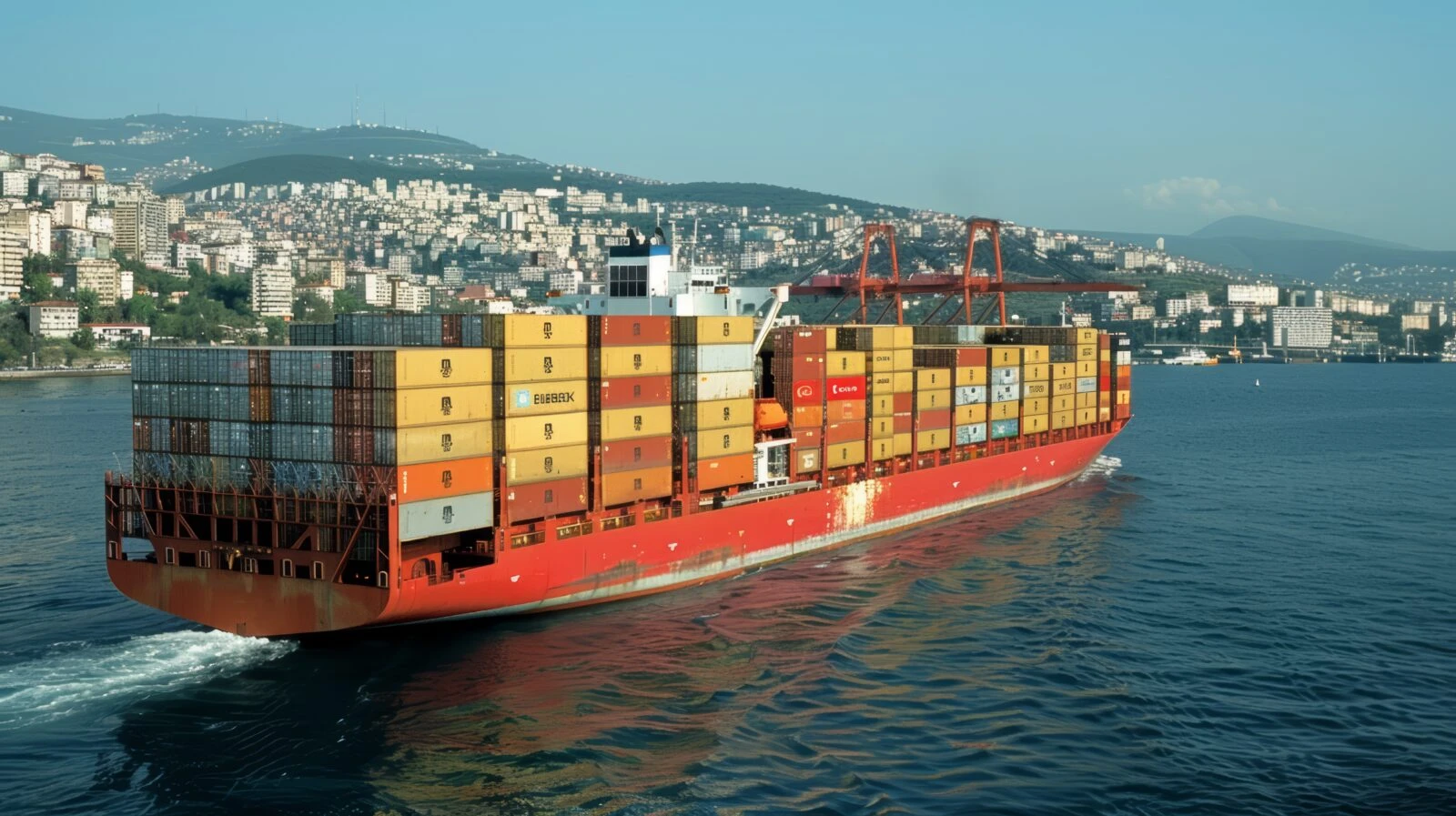Türkiye’s trade dilemma in Trump’s tariff war
 U.S. President Donald Trump (L) chats with President Recep Tayyip Erdogan (R) at the NATO Summit in Brussels, Belgium, July 11, 2018 (Collage by Türkiye Today team)
U.S. President Donald Trump (L) chats with President Recep Tayyip Erdogan (R) at the NATO Summit in Brussels, Belgium, July 11, 2018 (Collage by Türkiye Today team)
President Donald Trump’s tariff bravado is stirring controversy both domestically and internationally about its gains and losses. A key question that remains is whether this marks a lasting paradigm shift or just another cycle of short-term trade maneuvers. Meanwhile, analysts are exploring possible actions Türkiye can take beyond simply waiting and observing, as well as the potential consequences of inaction in an increasingly uncertain trade environment.
Trade policy expert Dmitry Grozoubinski warns that while some nations may gain in the short term, the long-term impact of rising protectionism is negative. “An unpredictable and protectionist climate among major players stifles investment and causes supply chains to be more conservative,” he told Türkiye Today. However, he acknowledged that regional economies could benefit by becoming key hubs for new supply chains.
Seasoned economists like Mustafa Sonmez and Sadi Uzunoglu caution against the looming risks to Türkiye’s economy, urging strategic measures to mitigate these challenges while assessing the country’s current economic stance.
Bluff?
In his first week back in office, Donald Trump wasted no time in shaking up global trade dynamics. He threatened a dozen countries, striking quick deals with many, and ultimately rolled back all the tariffs he had imposed, except on China. However, in a move that signals his broader trade ambitions, Trump has set his sights on the European Union, and many others.
Sonmez, author of 30 copyrighted books on economics, remains skeptical about whether a true paradigm shift is taking place. He points out that Trump often imposed tariffs as a negotiation tactic so far, only to withdraw them after achieving his goals. “We have yet to determine whether this represents a coherent economic policy or merely a bargaining tool,” he notes.
Known economist Uzunoglu suggests that global trade contraction could escalate if China imposes its own protective countermeasures. “While the impact on Türkiye may not be direct, the consequences could still be felt in unfavorable ways,” he adds.

Risks
While rising protectionism poses challenges, opportunities exist for Turkish industries to expand in the U.S. However, Grozoubinski cautions that the global trade environment remains uncertain. “Ultimately, while there may be incidental winners, the overall impact of rising protectionism is a net negative one,” he said. For Türkiye to succeed, both the government and private sector must act decisively.
Professor Uzunoglu cautions that the rising trend of U.S. tariffs is not only harmful to the American economy but also poses risks to global trade, including Türkiye. “China will redirect the products it can’t sell in the U.S. to other markets, which means economies that cannot compete with China will lose their market share elsewhere,” he explains.
From Sonmez’s perspective, Türkiye’s main vulnerability lies in its neglect of exports. “Suppressing the exchange rate to curb domestic inflation demotivates exporters,” he argues. Moreover, he believes Türkiye has limited flexibility in an evolving global trade landscape. “If market shares are being reshuffled, Türkiye lacks the room for significant maneuvering or repositioning,” he concludes.
Sonmez warns that if domestic costs in the U.S. rise due to supply chain disruptions, it could trigger an inflationary wave. “If the U.S. takes countermeasures, the entire global economy, including Türkiye, will be affected. For instance, if the Federal Reserve decides to raise interest rates, the cost of external financing for Türkiye could increase, as capital flows to the dollar. This, in turn, could negatively impact Türkiye’s exchange rate,” he explains.
Türkiye’s advantage
Türkiye’s ability to produce a wide range of goods and geolocation give it a strategic edge. Its diversified industrial base allows it to manufacture high-quality products at competitive costs. With European businesses already shifting production away from China, a similar transition could occur in the U.S.
Geography plays a crucial role. “Supply chains are more conservative, huddling close to home and avoiding crossing borders,” Grozoubinski noted. With its proximity to Europe and established trade ties, Türkiye is a natural alternative for companies looking to reduce reliance on China.
Türkiye prepares
Last November, after President Trump’s election, Türkiye moved to classify state subsidy data, aiming to shield its businesses from potential trade wars and retaliatory tariffs. By making Investment Incentive Certificates (YTBs) confidential, Ankara seeks to maintain a competitive edge in global markets, particularly amid rising protectionism. This suggests that Türkiye is preparing for potential economic confrontations, anticipating shifts in global trade policies and adjusting its strategy accordingly.
Türkiye’s auto sector, with global supply chain connections, might gain a chance to expand after tariffs on Chinese components. “Investors and supply chain managers desperately seek safe harbors,” Grozoubinski noted. Rising U.S. tariffs on China make Turkish textiles a strong alternative, especially for the buyers of Europe. “Trade facilitation and a transparent approach to regulation will be key in attracting buyers,” Grozoubinski said.

To maximize gains
Expanding trade relations with the U.S. and beyond by negotiating tariff adjustments will secure long-term access. “Countries are now seeking protection within their own spheres of influence, using free trade agreements to secure their economic positions. China is expanding its reach from Latin America to Africa through such deals. Türkiye should follow the same strategy to safeguard its economic interests,” Uzunoglu advises.
Investment in modern facilities and compliance with U.S. standards will enhance competitiveness. “A transparent approach to regulation and enforcement is crucial,” Grozoubinski stated.
Strategic marketing is needed to position Turkish goods as strong alternatives. “Stability and opportunity will attract investors seeking reliable trade partners,” he explained.
Efficient logistics and reduced costs are key to competing in the U.S. “When no one can say what the trade future could bring, countries with predictable policies will benefit,” Grozoubinski concluded.
A window
Trump’s proposed tariffs make Chinese goods significantly more expensive in the U.S. While China faces a 60% duty, goods from other nations would see only a 10% increase. This gives Turkish exporters an opportunity to become cost-effective suppliers.
To capitalize on this shift, experts are analyzing U.S. import data. Sectors where Türkiye already holds a market share above 5% and where Chinese exports exceed $2 billion are key targets. Grozoubinski emphasizes the need for a stable trade environment. “Comparative neutrality or at least predictable patterns of alignment will be important,” he said, stressing that Türkiye must present itself as a reliable trading partner.
If Trump’s threats and policy shifts reach a point where he is seriously committed to change, even shielding the U.S. from its closest allies, Türkiye will need to step up its efforts. Securing more strategic agreements through its policymakers, and leveraging its competitive advantages while further enhancing its market positioning to stay afloat on the evolving trade landscape.



